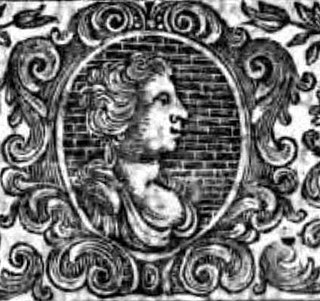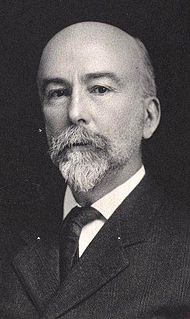A Quote by David Hume
From the apparent usefulness of the social virtues, it has readily been inferred by sceptics, both ancient and modern, that all moral distinctions arise from education, and were, at first, invented, and afterwards encouraged ... in order to render men tractable, and subdue their natural ferocity and selfishness, which incapacitated them for society.
Related Quotes
A narrow and moralistic view of morals is responsible for the failure to recognize that all the aims and values which are desirable in education are themselves moral. Discipline, natural development, culture, social efficiency, are moral traits - marks of a person who is a worthy member of that society which it is the business of education to further.
We destroy the most hallowed of relations, when we replace home education by social.And your education! Is not that also social, and determined by the social conditions under which you educate, by the intervention, direct or indirect, of society, by means of schools, etc.? The Communists have not invented the intervention of society in education; they do but seek to alter the character of that intervention, and to rescue education from the influence of the ruling class.
Strength, Courage, Mastery, and Honor are the alpha virtues of men all over the world. They are the fundamental virtues of men because without them, no 'higher' virtues can be entertained. You need to be alive to philosophize. You can add to these virtues and you can create rules and moral codes to govern them, but if you remove them from the equation altogether you aren't just leaving behind the virtues that are specific to men, you are abandoning the virtues that make civilization possible.
Men and women must be educated, in a great degree, by the opinions and manners of the society they live in. In every age there has been a stream of popular opinion that has carried all before it, and given a family character, as it were, to the century. It may then fairly be inferred, that, till society be differently constituted, much cannot be expected from education.
When women gain access to higher education and then suddenly start doing better at it than the men, that can really throw the prevailing social order out of balance. That's exactly what's happened in South Korea, which is a highly patriarchal society. They started educating women, and then they were no longer the women that society wants them to be. That caused a real cultural crisis.
"The myths," says Horace in his Ars Poetica, "have been invented by wise men to strengthen the laws and teach moral truths." While Horace endeavored to make clear the very spirit and essence of the ancient myths, Euhemerus pretended, on the contrary, that "myths were the legendary history of kings and heroes, transformed into gods by the admiration of the nations." It is the latter method which was inferentially followed by Christians when they agreed upon the acceptation of euhemerized patriarchs, and mistook them for men who had really lived.
... the modern state masks itself in moral ideologies which obscure its actual conduct. One of the most compelling and insidious of these ideologies is the doctrine of natural rights. It was to secure these rights that the modern state was invented in the first place, and it is impossible, especially for Americans, not to be seduced by the doctrine. But it is nonetheless a philosophical superstition.
The principles are important. First, the interest of the state or society counts for everything, that of the individual for nothing. Second, the only difference between men and women is one of physical function- one begets, the other bears children. Apart from that, they both can and should perform the same functions - though men on a whole, perform them better and should receive the same education to enable them to do so; for in this way society will get the best value from both.
The very foundation of our science is only an inference; far the whole of it rests an the unprovable assumption that, all through the inferred lapse of time which the inferred performance of inferred geological processes involves, they have been going on in a manner consistent with the laws of nature as we know them now.
But, historians, and even common sense, may inform us, that, however specious these ideas of perfect equality may seem, they are really, at bottom, impracticable; and were they not so, would be extremely pernicious to human society. Render possessions ever so equal, men's different degrees of art, care, and industry will immediately break that equality. Or if you check these virtues, you reduce society to the most extreme indigence; and instead of preventing want and beggary in a few, render it unavoidable to the whole community.
If there be an order in which the human race has mastered its various kinds of knowledge, there will arise in every child an aptitude to acquire these kinds of knowledge in the same order. So that even were the order intrinsically indifferent, it would facilitate education to lead the individual mind through the steps traversed by the general mind. But the order is not intrinsically indifferent; and hence the fundamental reason why education should be a repetition of civilization in little.
But, you will say, we destroy the most hallowed of relations, when we replace home education by social.... The Communists have not invented the intervention of society in education; they do but seek to alter the character of that intervention, and to rescue education from the influence of the ruling class.







































